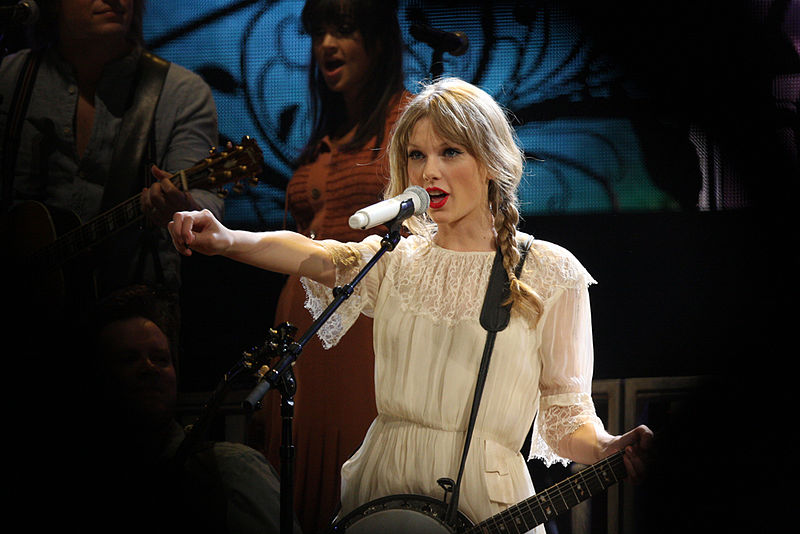Taylor Swift: A Modern Woman
Thinking of Taylor Swift as a representation of a modern woman may seem an odd thing to consider when taking in the good-girl image that she projects with her bouncy blond hair and ruby-red lips. But when we look past her visually apparent qualities and take into account the agency she exudes in her highly publicized life, the idea doesn’t seem to be so far-fetched.
Though the world’s impression of her image is inherently feminine, her actions, specifically in the realm of relationships, are the exact opposite. Most would interpret her role as traditionally male because she frequently cycles through men, which severely contrasts with stereotypes about women in relationships. Namely, that we crave long-standing love affairs and that we feel the need to make them last as long as possible. Committing to an action that does not reflect this expectation is essentially a turn off and creates a negative impression of Swift in the eyes of the public. She’s highly criticized for her short-lived romances and, more importantly, blamed for the shattered relationships. Blamed. As if her gender requires her to make a relationship last until the last match burns out. At the same time, it’s obvious that her various partners throughout her career have not been held responsible for the breakups.
But seriously, what is the problem here? Is it the fact that she’s dating one guy after another? That she’s doing it publically? Or the fact that she repeats her past actions? To me, it’s plain that the problem is the fact that she’s not sorry. And to that I say, you go girl!
Regardless if you are a fan of hers or not, there is no room to deny the fact that Swift’s personal life is a huge influence on the lyrical component of her music, her two new songs Shake It Off and Blank Space being prime examples. These songs are essentially a big IDGAF to anyone who thinks that her social life is a problem.
With lyrics like “I go on too many dates but I can’t make ‘em stay” and “I know you heard about me…I’m dying to see how this one ends,” she emphasizes her desires to be like nothing anyone expects. Basically, if you don’t like her the way she is, then that’s a problem for you to deal with on your own. The most important thing that her music does is allow for a creative expression of her feelings and thoughts. In doing so, she’s instilling a belief to younger generations that relationship ideals shouldn’t differ between genders.
There’s nothing wrong with a woman having a “long list of ex-lovers,” and it surely doesn’t mean there is something wrong with her if she does. If that is the case, wouldn’t most men be unsuitable at this point?





